Department News
2025
Wendy Marie Campana appointed chair of Department of Cell Biology and Human Anatomy

The UC Davis School of Medicine is pleased to announce the appointment of Wendy Marie Campana as chair of the Department of Cell Biology and Human Anatomy. A distinguished neuroscientist and educator, Campana brings a wealth of experience in academic leadership, groundbreaking research and a deep commitment to mentorship.
“Campana is a dynamic and collaborative leader with an impressive research portfolio," said Susan Murin, dean of the UC Davis School of Medicine. "We are excited to see how the department will grow and thrive under her leadership."
2024
School of Medicine Research Image Contest Winner
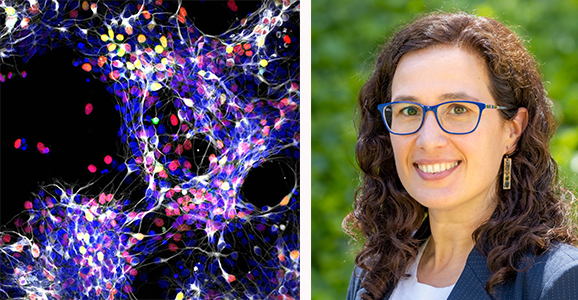
Congratulations to Anna La Torre, professor of cell biology and human anatomy for winning this quarter’s School of Medicine Research Image Competition! The winning image, is a microscopy image depicting neurons differentiating from progenitor cells in a cell culture.
Marie Burns appointed interim director for Center for Neuroscience
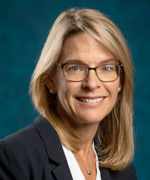
Marie Burns has been appointed interim director of the Center for Neuroscience (CNS), effective July 1, 2024. Burns is a professor in the departments of Ophthalmology and Vision Science and Cell Biology and Human Anatomy in the UC Davis School of Medicine.
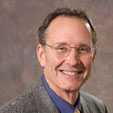
Congrats to Paul FitzGerald, Ph.D., Professor and Chair, has recently received 2024 Kaiser Foundation Hospitals Award for Excellence in Teaching.
UC Davis Cultivating Team Science Award
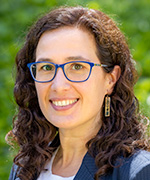
Congrats to Anna La Torre who is PI on a UC Davis Cultivating Team Science award that was just funded: "On-Sight (Optic Nerve Special Interest Group for Human Therapeutics): Developing Novel Models of Retinal Ganglion Cell Degeneration."

Congratulations Anna La Torre, Ph.D., who was promoted to Full Professor.
Inaugural Center for Vision Sciences Legend Award
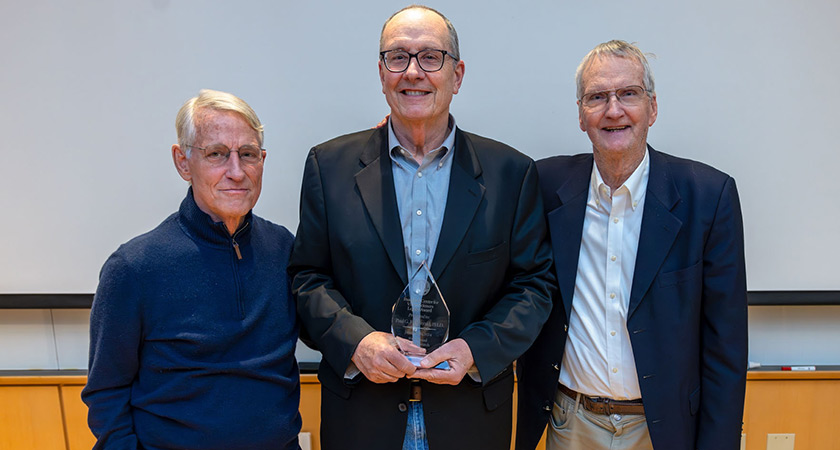 Prof. Paul FitzGerald (center) received the inaugural Center for Vision Sciences Legend Award at the annual vision symposium on January 5, 2024. The award was presented by Edward Pugh (left) who detailed the scientific, academic, and leadership accomplishments of Paul over his 40-year career at UC Davis. FitzGerald will join other emeritus faculty, like Ophthalmology’s John Keltner (right), in July when he steps down as chair and retires. We will miss you, Paul!
Prof. Paul FitzGerald (center) received the inaugural Center for Vision Sciences Legend Award at the annual vision symposium on January 5, 2024. The award was presented by Edward Pugh (left) who detailed the scientific, academic, and leadership accomplishments of Paul over his 40-year career at UC Davis. FitzGerald will join other emeritus faculty, like Ophthalmology’s John Keltner (right), in July when he steps down as chair and retires. We will miss you, Paul!
2023
Jennifer Rossi receives 2022 Karen Eilers Award for Staff Excellence
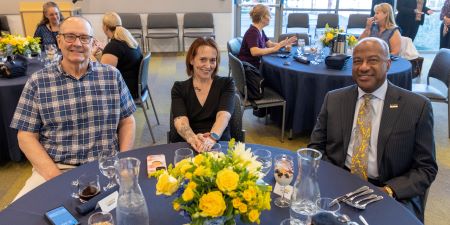
Chief administrative officer, Jennifer Rossi received the 2022 Karen Eilers Award for Staff Excellence, presented by Chancellor Gary May and Chief Executive Officer and Vice Chancellor of Human Health Services David Lubarsky, M.D. for her outstanding contributions to the health system. Congratulations!
2022
UC Davis researchers dissect COVID-19’s impact on sense of smell
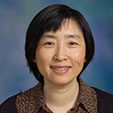
Professor Qizhi Gong along with Otolaryngologist Toby Steele, recently received a two-year, $275,000 National Institutes of Health grant to study how COVID-19 disrupts the sense of smell. In this unique collaboration, the UC Davis Health team hopes to potentially identify diagnostic tools and therapeutic treatments. They'll be characterizing the severity and length of patient smell loss, collecting samples and conducting in-depth protein analyses to dissect the mechanisms that cause olfactory dysfunction.
Burns Lab Safety Award Winner
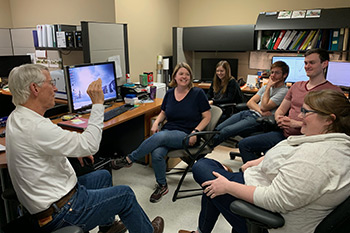
For the second time, Marie Burns is being honored for cultivating an outstanding safety culture with her lab.
The Burns' Lab in the Department of Cell Biology and Human Anatomy, studies photoreceptors of the retina and how they transduce photons of light into electrical signals.
Any researcher in the Burns lab knows Friday is a time to party– specifically a cleaning party that’s been coined the “Friday Frenzy”. A timer is set and for the next 10 minutes, everyone takes the time to go around the room and focus on cleaning and safety. The lab manager, Sarah Karlen assigns different chores— checking eyewash stations, glass bins and hazardous materials. And before they know it, the lab is clean and ready for their weekly group meeting.
2019
School of Medicine lab recognized for safety
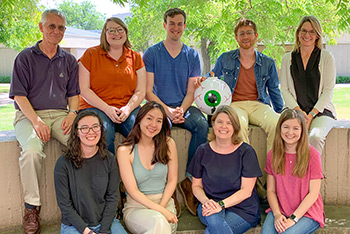
The Burns-Pugh lab, which researches neurodegenerative diseases of the eye, is one of six winners in the inaugural Laboratory Safety Awards program from UC Davis Safety Services.
The awards panel chose a winner from each of the university’s four colleges and the School of Medicine and School of Veterinary Medicine.
To see what the culture of safety looks like in the Burns-Pugh lab, show up on a Friday – and be prepared to watch 10 people go into action. Those who work with Principal Investigators Marie Burns and Edward Pugh, studying photoreceptors of the retina, pause what they’re doing once a week for “Friday Frenzy” mode.
A comprehensive study on the structure of the vimentin protein

The Voss lab, together with the FitzGerald lab of Cell Biology and Human Anatomy, published a comprehensive study on the structure of the vimentin protein. The article, “Completion of the vimentin rod domain structure using experimental restraints: a new tool for exploring Intermediate Filament assembly and mutations” appeared August 8th in Cell: Structure. The work includes description of vimentin’s linker 1-2 region, which has thus far eluded structural determination. The Voss and FitzGerald groups used a combination of EPR spectroscopy and molecular modeling to describe linker 1-2 and unite the separate elements of the vimentin rod domain into a single experimentally-based model.
UC Davis doctors help Haitian residents, physicians years after quake
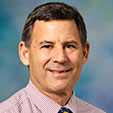
The devastating earthquake that hit Haiti in 2010 left the Caribbean country in ruin. More than 230,000 people died, and millions were injured and without homes. Today, thousands of residents still live in unsanitary, unsafe conditions. To help this vulnerable population, UC Davis Children’s Hospital physicians travel to Haiti to provide care and training.
Departmental faculty member and pediatrician Douglas S. Gross, M.D., Ph.D., served on a federal disaster medical assistance team that was deployed shortly after the earthquake. The trip inspired him to create the UC Haiti Initiative, an educational, research and public service partnership between each University of California campus and the State University of Haiti.
In Memorium: Robert L. Hunter, Ph.D., June 29, 1921 - March 4, 2019, founding faculty member of the UC Davis School of Medicine, and Chair of the Department of Anatomy
Robert Hunter, age 97, a longtime resident of Davis and professor emeritus at the UC Davis School of Medicine, passed away March 4.
Born and raised in Delaware, Ohio, he received his bachelor’s and master’s degrees from Ohio Wesleyan University. He received his Ph.D. from the University of Michigan in zoology with an emphasis in histology and embryology. During World War II he served in the Army Medical Corp in England.
A Judge Rules Against One Stem-Cell Clinic. There Are Hundreds of Them
A judicial ruling this month that will stop questionable stem-cell treatments at a clinic in Florida is widely seen as a warning to a flourishing industry that has attracted huge numbers of patients, who pay thousands of dollars for unproven, risky procedures.
UC Davis launches national center to advance genome-editing tools

Professor Alice Tarantal, Ph.D., received an ~$9M grant from the National Institutes of Health (NIH) to establish a CRISPR gene editing program at the Primate Center.
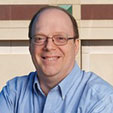
Professor Paul Knoepfler, Ph.D., has recently received 2019 Kaiser Award for Teaching Excellence in the Basic Sciences.
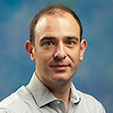
Assistant Professor In-Residence Sergi Simo, Ph.D., has been awarded a 5-year RO1 entitled Regulation of hippocampal morphogenesis and homeostasis by the E3 ubiquitin ligase CRL5.
Ahmad Zedan, an undergraduate student from the Gong Lab has received the 2019 Award for Undergraduate Research from Association for Chemoreception Science: “This award recognizes an outstanding presentation made by an undergraduate student at the AChemS Annual Meeting".
2018
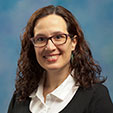
Anna La Torre, Ph.D., Assistant Professor, has recently received a 3 year, $600k award from the Glaucoma Research Foundation.

Paul Knoepfler, Ph.D., Professor, has recently received a new RO1 “Targeting the Mutant H3.3 Pathway in Glioma”.
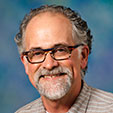
Richard Tucker, Ph.D., Professor, has received a Teaching Award from the Biochemistry, Molecular, Cellular and Developmental Biology graduate students.

Paul FitzGerald, Ph.D., Professor and Chair, has recently received 2018 Kaiser Foundation Hospital’s Annual Award for Excellence in Teaching Basic Sciences.
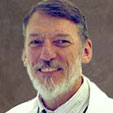
Craig Watson, M.D., Ph.D., Professor, has recently received 2018 Kaiser Foundation Hospital’s Annual Award for Excellence in Teaching Clinical Sciences.
Startup receives FDA clearance for polymer to aid bone regrowth
A biotechnology startup enabled by UC Davis, Molecular Matrix Inc., has received Food and Drug Administration clearance for a carbohydrate-based polymer that can help injured bones heal and regrow. For Charles Lee, the founder of Molecular Matrix and also an assistant adjunct professor in the Department of Cell Biology and Human Anatomy at the UC Davis School of Medicine, the FDA clearance marks an exciting turning point for the company UC Davis helped him found in 2011.
2017
Reaching out to Puerto Rico: UC Davis pediatrician returns after serving on a Disaster Medical Assistance Team

Douglas S. Gross, M.D., Ph.D., Professor, joined 39 other physicians, nurses, paramedics and health specialists in Puerto Rico to care for those displaced by Hurricane Maria.
Read more (PDF).
Knoepfler awarded second Alex's Lemonade Stand research grant

Knoepfler's lab has some funding from the childhood cancer foundation called Alex’s Lemonade Stand. The foundation now has a fundraiser on-going where all the money raised goes to the labs doing the research and the foundation matches it dollar for dollar. His lab has set up a UC Davis team. So if they meet the team goal of $25K, Alex’s Lemonade Stand gives his lab $50K more for our research on childhood cancer. Read more about this from here. Anyone who is interested can sign up at: https://www.alexslemonade.org/mypage/1358985.

Paul Knoepfler, Ph.D., Professor, has been awarded a second Alex's Lemonade Stand research grant.
2016
NEI Welcomes Four New Members to National Advisory Eye Council
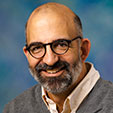
Thomas Glaser, M.D., Ph.D., Professor, was appointed to the National Advisory Eye Council of the National Eye Institute (NEI).

Douglas S. Gross, M.D., Ph.D., Senior Lecturer, has been named as the recipient of the 2016 Emil Mrak Award from the Cal Aggie Alumni Association.
Read more (PDF)
2015

Paul Knoepfler, Ph.D., Professor, has been awarded a childhood cancer research grant.

Departmental faculty member Paul Knoepfler's TEDxVienna talk on the potential future use of CRISPR in humans was featured on TED.com's home page.
Rare mutation causes vitamin A deficiency and eye deformities

Tom Glaser, M.D., Ph.D., Professor, and other researchers at the University of Michigan and UC Davis have solved a genetic mystery that has afflicted three unrelated families, and possibly others, for generations. These families have been plagued by a variety of congenital eye malformations, including small eyes with poor vision and the complete absence of eyes. But until now, no one could figure out the genetic basis for these conditions.

Paul Knoepfler, Ph.D., Professor, was recently featured on the PBS Nightly News hour, interviewed by Jennifer Doudna, by Gwen Ifil.
This interview can be viewed at the following links. PBS NewsHour, YouTube.
2014

Of all the recent advances in science and medicine, one of the most promising relates to stem cells. Are they a miracle cure? What dangers lurk? Paul Knoepfler from UC Davis School of Medicine and author of Stem Cells - An Insider's Guide discusses the research and future of stem cells.
2012
A Recent publication of the SDSL EPR and crystallographic structure of a tetrameric fragment of Vimentin, from the FitzGerald and Voss labs, was featured on the Nature Structural Biology website, under Research Advances: Symmetry from Asymmetry.
The feature may be found here »
UC Davis stem cell researchers awarded $53 million
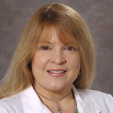 Jan Nolta, Ph.D., Director of the UC Davis Stem Cell Program and its Institute for Regenerative Cures along with many other center experts recently received $53 Million in funding for the application of stem cells to the treatment of several different human diseases.
Jan Nolta, Ph.D., Director of the UC Davis Stem Cell Program and its Institute for Regenerative Cures along with many other center experts recently received $53 Million in funding for the application of stem cells to the treatment of several different human diseases.
2011
Blogosphere as a means of scientific communication?

Professor Paul Knoepfler explains why he joined the ranks of the blogosphere, and why you should too.


